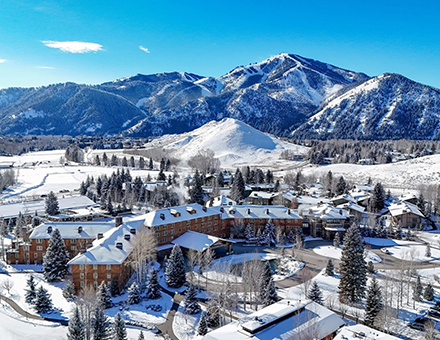SAM Magazine—Boise, Idaho, June 30, 2026—The Idaho Supreme Court has reversed its precedent-breaking December 2023 ruling in Milus v. Sun Valley Co., reinstating a lower court’s summary judgment in favor of Sun Valley Resort in a wrongful death lawsuit brought by the widow of a skier who died after colliding with snowmaking equipment.
The December decision, which asserted that a jury should weigh whether Sun Valley had failed in its duties enumerated in Idaho’s Ski Safety statute, broke with precedent regarding interpretation of the state’s 1979 Ski Area Liability Act, prompting alarm among ski areas, insurers, and lawmakers that it could drive up liability premiums and threaten small-area viability.
In a rare move, the court agreed to rehear the case in February of this year.
The case stems from a 2019 incident in which 65-year-old Stewart Milus died after hitting a yellow-padded snow gun tower on Lower River Run at Sun Valley. His widow, Laura Milus, sued the resort, alleging it had failed in its statutory duty to warn skiers of the hazard and post adequate notice at the top of the run.
Last week, the court found there was a “genuine issue of material fact” over whether that top-of-run notice was posted, but ultimately ruled that because the snow gun was plainly marked, the assumption-of-risk defense barred recovery, which is to say that because the snow gun was plainly marked in accordance with the law, Milus assumed the risk of injury caused by that equipment. For that reason, the supreme court upheld the district court’s dismissal of the case in its ruling on June 25, 2025, reaffirming long-standing liability protections for ski areas under the Ski Area Liability Act.
However, the justices maintained their December interpretation that ski area operators are held to an “ordinarily prudent person” standard of care when fulfilling statutory duties, rejecting decades of Idaho precedent that had treated those duties as exempt from negligence standards.
Justice Cynthia Meyer dissented from that portion of the opinion, arguing that while the statute is “far from a model of clarity” it is also “not unambiguous” in providing that “the operator will not be held to ‘any standard of care’ in accomplishing activities undertaken to eliminate, alter, control, or lessen risks inherent in skiing. …
“Whether it is wise or socially unsound is not for us to decide. But that is the framework the legislature enacted,” she added.
“Obviously we’re pleased with the Supreme Court’s decision to uphold summary judgment,” said Bogus Basin general manager and former president of the Idaho Ski Areas Association Brad Wilson, speaking to the Idaho Capital Sun. “We won this particular piece of it, and so we’re pleased with that. But I don’t know what the implications of the rest of it is.”
In February 2024, following the court’s December 2023 decision, a bill was introduced to clarify that “no standard of care” applies to the duties of ski areas enumerated in the existing law. Lawmakers deferred the legislation until the court ruled on the rehearing.
With the decision now final, Idaho House Judiciary Committee chair Bruce Skaug told the Capital Sun his committee will “look at possible changes, so that the law is more clear as to what it intended—so that it’s easier for the courts and litigants to interpret.”
Idaho lawmakers are next set to convene in January 2026.





